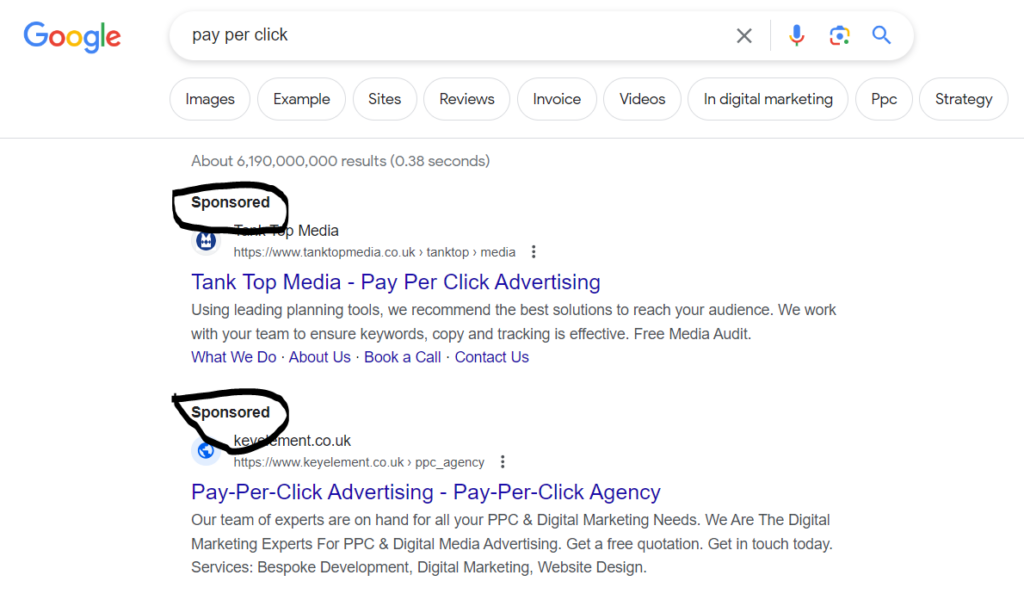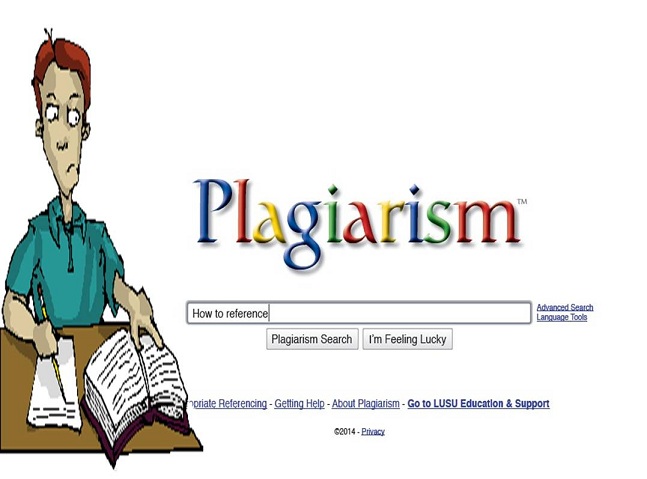Welcome to our beginner’s guide on how to start pay-per-click advertising. If you’re new to PPC advertising, you’ve come to the right place. In this guide, we will provide you with valuable insights and tips to help you navigate the world of PPC marketing effectively. Whether you’re a small business owner or a marketing professional, understanding the fundamentals of PPC advertising is essential for driving targeted traffic and achieving your marketing goals.

PPC advertising offers numerous advantages, making it an attractive option for businesses of all sizes. With pay-per-click, you only pay when someone clicks on your ad, ensuring that your marketing budget is used efficiently. Furthermore, PPC campaigns provide real-time results, allowing you to measure the success of your campaigns and make data-driven decisions to optimize performance.
Throughout this guide, we’ll cover everything you need to know to get started with pay-per-click advertising. From understanding the basics of PPC in digital marketing to learning essential skills and exploring best practices, we’ve got you covered.
So, whether you’re eager to launch your first PPC campaign or want to refine your existing strategies, let’s dive into the world of pay-per-click advertising and unlock the potential of this powerful marketing tool.
What is PPC in Digital Marketing?
PPC, or pay-per-click, is a digital marketing method where advertisers pay for their website to appear on search engine results pages (SERPs) and only pay when a user clicks on their ad. It is a cost-effective way to drive targeted traffic to a website and track the return on investment (ROI) of advertising campaigns. PPC advertising is used across various platforms such as search engines, social media, and display networks.
In the below screenshot, I searched “pay per click” and if you see that first two results say sponsored which means if you click on these search result that the website owner will pay the cost to google in turn of google displaying there web page on top.

Benefits of PPC in Digital Marketing
- Highly targeted: PPC allows advertisers to reach their specific target audience by selecting keywords, demographics, and interests.
- Cost-effective: Advertisers only pay when someone clicks on their ad, making it a more efficient use of advertising budget.
- Measurable results: PPC provides detailed analytics and metrics that allow advertisers to track the performance of their campaigns and make data-driven decisions.
- Fast results: Unlike other marketing methods, PPC campaigns can be set up and launched quickly, providing immediate visibility and results.
“PPC advertising gives businesses the opportunity to reach potential customers at the right moment when they are actively searching for products or services. It offers a level playing field for businesses of all sizes to compete in the digital marketing landscape.”
PPC advertising works by bidding on keywords that are relevant to your business or industry. When a user searches for those keywords, your ad appears at the top or bottom of the search results page. If the user clicks on your ad, you pay the predetermined cost per click (CPC). This cost varies depending on the competitiveness of the keyword and the bidding strategy.
PPC not only helps drive traffic to your website but also allows for precise targeting and customization of ad campaigns. With PPC, you have control over the ad copy, landing pages, budgets, and targeting parameters, enabling you to tailor your campaigns to specific audiences and objectives.

Learning about Pay-Per-Click Advertising for Beginners
Are you new to the world of pay-per-click (PPC) advertising? Don’t worry, there are plenty of resources available to help beginners like you navigate this exciting marketing strategy. Whether you’re looking to increase brand visibility or drive targeted traffic to your website, PPC advertising can be a powerful tool.
Online courses and tutorials provide a comprehensive and structured way to learn about PPC advertising. These resources cover everything from the basics to advanced strategies and best practices. You’ll gain knowledge on essential topics such as keyword research, ad creation, bidding strategies, campaign management, and performance tracking.
Joining PPC communities and forums is another great way to expand your understanding of PPC advertising. By engaging with experienced advertisers and industry professionals, you can gain valuable insights and learn from their experiences. These communities often provide a platform for discussion, knowledge sharing, and asking questions.

Being immersed in the world of PPC advertising allows you to stay updated on the latest trends, discover new strategies, and connect with like-minded professionals. It’s a supportive environment where you can learn from others and gain inspiration for your own campaigns.
PPC advertising is a constantly evolving field, so it’s crucial to stay informed and continue learning. By investing time and effort into expanding your knowledge, you can maximize the effectiveness of your PPC campaigns and achieve your marketing goals.
Essential Skills for Pay-Per-Click Advertising
To succeed in pay-per-click advertising, beginners should develop a range of essential skills. These skills will help them navigate the complexities of running successful PPC campaigns and maximize their return on investment (ROI). Here are some key skills required for starting a pay-per-click campaign:
- Keyword Research and Analysis: Proficiency in keyword research is crucial for identifying the most relevant and high-performing keywords. This involves understanding search trends, using keyword tools, and analyzing competitor strategies to select the right keywords for your ads.
- Audience Targeting and Segmentation: Understanding your target audience and segmenting them based on demographics, interests, and behavior is essential for reaching the right users with your ads. This skill helps you create targeted campaigns that resonate with your ideal customers.
- Ad Copywriting: Crafting compelling ad copy is vital for capturing the attention of potential customers and driving clicks. The ability to write persuasive and engaging ad copy will help improve click-through rates and maximize the effectiveness of your PPC campaigns.
- Landing Page Optimization: A well-optimized landing page can significantly impact the conversion rate of your PPC campaigns. Skills in landing page optimization involve creating relevant and persuasive landing pages that align with the ad copy and encourage users to take action.
- A/B Testing: A/B testing allows you to experiment with different variables in your ad campaigns to determine the most effective strategies. Being able to design and conduct A/B tests will help you optimize your ads and improve conversion rates over time.
- Data Analysis and Campaign Performance Tracking: Proficiency in data analysis is essential for monitoring the performance of your PPC campaigns and making data-driven decisions. Skills in campaign performance tracking and data analysis enable you to identify areas for improvement and optimize your campaigns for maximum ROI.
By developing these essential skills, beginners can lay a strong foundation for successful pay-per-click advertising campaigns. Mastering these skills will help them create targeted, compelling ads, optimize landing pages, and continuously improve campaign performance.

Quote:
“The success of your pay-per-click campaigns relies on your ability to effectively research keywords, target your audience, write compelling ad copy, optimize landing pages, conduct A/B testing, and analyze campaign performance.” – Jane Thompson, PPC Advertising Expert
Free Courses for Learning Pay-Per-Click Advertising
If you’re a beginner looking to learn about pay-per-click (PPC) advertising, there are several free courses available that can help you get started. Online learning platforms and marketing blogs offer introductory courses that cover the fundamentals of PPC advertising. These courses provide a comprehensive understanding of PPC advertising strategies and best practices.
By enrolling in these free courses, you’ll gain valuable knowledge on topics such as keyword research, ad creation, bidding strategies, campaign management, and performance tracking. The courses typically include video lessons, quizzes, and hands-on exercises to enhance your learning experience.
Completing these courses can also provide you with certifications, which can add credibility to your resume or portfolio. These certifications demonstrate your commitment to learning and your understanding of PPC advertising.
If you’re ready to take your first step into the world of PPC advertising, consider exploring these free courses:
- Introduction to PPC Advertising: Learn the basics of PPC advertising, including how to set up and manage effective campaigns.
- Keyword Research for PPC: Understand how to conduct keyword research to identify relevant and high-performing keywords for your ads.
- Ad Copywriting for PPC: Master the art of writing persuasive and engaging ad copy that drives clicks and conversions.
- Bidding Strategies for PPC: Discover different bidding strategies and learn how to optimize your bids for maximum ROI.
- Campaign Management and Optimization: Learn how to effectively manage and optimize your PPC campaigns to achieve your advertising goals.
By taking advantage of these free courses, you can build a solid foundation in PPC advertising and set yourself up for success in your digital marketing journey.
Potential Earnings in Pay-Per-Click Advertising
When it comes to pay-per-click (PPC) advertising, the potential earnings can be significant. However, the exact amount varies depending on several factors such as the industry you’re in, the advertising platform you choose, and the performance of your campaigns.
Successful advertisers have the opportunity to earn a substantial income through PPC advertising. Whether you’re running PPC campaigns for your own business or managing them for clients as a freelancer or agency professional, the potential for earning is promising.
Earnings in PPC advertising can range from a few hundred dollars to several thousand dollars per month, depending on factors like the size and scope of the campaigns. Experienced professionals with a track record of success can even earn higher incomes.
Ultimately, the key to maximizing your potential earnings lies in running effective PPC campaigns that drive targeted traffic and generate results. By strategically optimizing your ads, targeting the right audience, and continuously tracking and refining your campaigns, you can increase your chances of achieving financial success in the world of PPC advertising.
Remember, the potential earnings in PPC advertising are not guaranteed, as they depend on various factors. However, with the right strategies, expertise, and dedication, you can harness the power of PPC advertising to drive substantial income.

Explore the vast potential of PPC advertising and unlock new opportunities for financial growth.
Best PPC Ads Examples
Looking for inspiration for your pay-per-click (PPC) advertising campaigns? Here are some exceptional examples of successful PPC ads that can help beginners understand the key elements of a winning ad. These ads have mastered effective copywriting, compelling visuals, and strategic placement, making them great examples to learn from.
- Example 1: Company X’s PPC ad for their new product showcases a catchy headline and concise copy that highlights the product’s unique features. The ad’s visuals are eye-catching and relevant, grabbing the user’s attention immediately. With a compelling call-to-action, the ad effectively drives clicks and conversions.
- Example 2: Brand Y’s PPC ad utilizes emotional appeal, with an engaging headline and powerful imagery that resonates with the target audience. The ad’s copy effectively communicates the brand’s value proposition and differentiates it from competitors. The strategic placement of the ad on high-traffic websites ensures maximum visibility.
- Example 3: Retailer Z’s PPC ad focuses on limited-time offers and discounts, creating a sense of urgency. The ad’s copy highlights the savings and persuades users to take immediate action. The ad’s visual elements, such as product images and price tags, complement the compelling copy and entice users to click.
By studying these examples, beginners can gain valuable insights into creating effective PPC ads. Remember to tailor your ads to your target audience, use strong and persuasive language, and incorporate compelling visuals to maximize the impact of your PPC campaigns.
Steps to Begin Pay-Per-Click Advertising
To begin your pay-per-click (PPC) advertising journey, follow these steps:
- Choose a PPC advertising platform: Select a platform like Google Ads, Bing Ads, or social media advertising platforms.
- Set up an account: Create an account on the chosen platform and provide the necessary information.
- Conduct keyword research: Identify relevant keywords for your ads and campaigns.
- Create compelling ad copy: Write engaging and persuasive ad copy that attracts your target audience.
- Set a budget: Determine your budget and set daily or campaign budget limits.
- Launch your campaign: Start running your ads and monitor their performance regularly.
- Optimize and refine: Continuously analyze and optimize your campaigns based on performance data.
By following these steps, you can start your PPC advertising journey and drive targeted traffic to your website.
PPC Advertising Best Practices
To maximize the effectiveness of your PPC advertising campaigns, it is important to follow these best practices:
- Conduct thorough keyword research: Identify relevant and high-performing keywords that align with your campaign objectives and target audience.
- Optimize your ad copy and landing pages: Create compelling and relevant ad copy that captures the attention of your target audience. Ensure that your landing pages are optimized with relevant keywords and compelling content to drive conversions.
- Test different ad variations and messaging: Experiment with different ad formats, headlines, and call-to-action (CTA) buttons to identify the most effective messaging that resonates with your audience.
- Monitor campaign performance and adjust bids: Regularly monitor the performance of your PPC campaigns, including click-through rates (CTR), conversion rates, and cost per click (CPC). Adjust your bids and budgets based on performance data to optimize campaign results.
- Target specific audiences based on demographics and interests: Utilize audience targeting options provided by advertising platforms to reach specific demographics or individuals with specific interests that align with your products or services.
- Use remarketing to target previous website visitors: Implement remarketing campaigns to reconnect with users who have previously visited your website, increasing the chances of conversion.
- Continuously track and analyze campaign metrics: Set up proper tracking and analytics to measure the performance of your PPC campaigns. Analyze metrics such as click-through rates, conversion rates, and return on ad spend (ROAS) to make data-driven decisions and optimize campaign performance.
- Stay updated with industry trends and platform updates: Stay informed about the latest developments in the PPC advertising industry and keep track of updates in advertising platforms. This knowledge will help you stay ahead of the competition and take advantage of new features and opportunities.
Following these best practices will help you create effective PPC advertising campaigns that generate more qualified traffic, maximize conversions, and yield a higher return on investment (ROI).
Managing PPC Campaigns Effectively
Effectively managing PPC campaigns is crucial for achieving optimal results and maximizing return on investment (ROI). By implementing the following strategies and practices, advertisers can ensure the success of their campaigns:
- Regularly monitoring campaign performance: Continuously track key metrics such as click-through rates (CTRs), conversion rates, and cost-per-click (CPC) to assess campaign performance and identify areas for improvement.
- Analyzing data and adjusting bids, ad copy, and targeting: Dive into campaign analytics to gain insights into what works and what doesn’t. Use the data to make informed decisions about bid adjustments, ad copy optimization, and targeting refinements.
- Conducting A/B testing to optimize ads and landing pages: Test different variations of your ads and landing pages to determine which combinations yield the best results. Refine your messaging, design, and call-to-action to maximize conversions.
- Continuously researching and expanding keyword lists: Stay up to date with relevant industry trends and consumer behavior to ensure your keyword list remains robust and aligned with your target audience’s search intent.
- Keeping up with industry updates and best practices: Pay attention to changes in PPC platforms, ad formats, and algorithm updates. Stay informed about new features, techniques, and strategies to maintain a competitive edge.
- Utilizing campaign tracking and analytics tools: Make use of advanced tools and platforms that offer comprehensive campaign tracking and insightful analytics. These tools provide valuable data for informed decision-making and efficient campaign management.
- Collaborating with a team or hiring a PPC agency for advanced campaign management: Depending on the scale and complexity of your campaigns, consider partnering with PPC experts who can bring valuable expertise, experience, and dedicated resources to your campaigns.
By implementing these practices and staying proactive in campaign management, advertisers can effectively navigate the dynamic landscape of PPC advertising, drive better results, and meet their marketing goals.
The Role of PPC Analytics in Campaign Success
PPC analytics plays a vital role in measuring the success of your campaigns and optimizing performance. By analyzing data such as click-through rates, conversion rates, cost per click, and return on ad spend, you can gain valuable insights into the effectiveness of different ads, keywords, and targeting strategies.
Tracking and analyzing these metrics provides a comprehensive understanding of your campaign’s performance, helping you identify areas for improvement and refine your overall strategy. Let’s take a closer look at how PPC analytics can contribute to your campaign success:
1. Click-through Rates (CTR)
Click-through rates indicate the percentage of users who click on your ad after seeing it. Analyzing CTR can help you gauge the effectiveness of your ad copy, headlines, and visuals in attracting user attention. By identifying ads with low CTR, you can optimize their elements to increase engagement and drive more traffic to your website.
2. Conversion Rates
Conversion rates are a key metric in determining the success of your PPC campaigns. They measure the percentage of users who complete a desired action, such as making a purchase or submitting a form, after clicking on your ad. Analyzing conversion rates helps you identify high-performing ads and landing pages, allowing you to optimize underperforming elements and maximize your ROI.
3. Cost per Click (CPC)
Cost per click measures the average amount you pay for each click on your ad. Monitoring CPC allows you to evaluate the efficiency of your budget allocation and bidding strategy. By identifying keywords or audiences with high CPC and low conversions, you can optimize your campaigns and allocate your budget to more cost-effective options.
4. Return on Ad Spend (ROAS)
Return on ad spend evaluates the revenue generated as a result of your advertising investment. It provides a clear picture of the profitability and effectiveness of your campaigns. By tracking ROAS, you can identify which campaigns are generating the highest returns and allocate your resources accordingly to maximize your profitability.
Understanding these key metrics and regularly analyzing them allows you to make data-driven decisions and optimize your PPC campaigns for maximum success and ROI.
Here is an example of a PPC analytics summary table showcasing the key metrics and their importance:
| Metric | Definition | Importance |
|---|---|---|
| Click-through Rate (CTR) | The percentage of users who click on your ad after seeing it | Measures the effectiveness of ad copy and visuals |
| Conversion Rate | The percentage of users who complete a desired action after clicking on your ad | Indicates the effectiveness of landing pages and call-to-action |
| Cost per Click (CPC) | The average amount you pay for each click on your ad | Evaluates budget allocation and bidding efficiency |
| Return on Ad Spend (ROAS) | The revenue generated as a result of your advertising investment | Measures campaign profitability and effectiveness |
By understanding the role of PPC analytics and utilizing the insights gained, you can make informed decisions, refine your strategies, and achieve optimal results in your pay-per-click advertising campaigns.
Working with a PPC Agency for Maximum Results
For businesses aiming to achieve maximum results from their PPC campaigns, partnering with a professional PPC agency can be a game-changer. PPC agencies possess the expertise and knowledge required to create highly effective ad campaigns that drive targeted traffic and conversions. By leveraging their expertise, businesses can make the most out of their pay-per-click advertising investments.
One of the key benefits of working with a PPC agency is their ability to conduct thorough keyword research. They have the tools and experience to identify the most relevant and high-performing keywords for your industry, ensuring that your ads reach the right audience at the right time. With their guidance, businesses can optimize their ad copy and landing pages to drive maximum conversions.
In addition to optimizing campaigns, PPC agencies excel in managing budgets effectively. They understand the intricacies of bid management and budget allocation, ensuring that your advertising budget is utilized wisely to achieve the best possible results. By partnering with a PPC agency, businesses can save time and resources, allowing them to focus on other important aspects of their operations.
Overall, working with a PPC agency provides businesses with a strategic approach to PPC advertising. With their expertise and industry knowledge, PPC agencies can navigate the ever-changing digital advertising landscape and adapt campaign strategies accordingly. By improving campaign performance and maximizing ROI, businesses can achieve their marketing goals and grow their online presence.



![Google Discover क्या है कैसे कार्य करता हैं? Google Discover [Feed] In Hindi](https://www.deepawaliseotips.com/wp-content/uploads/2020/03/Google-Discover-in-Hindi.jpg)